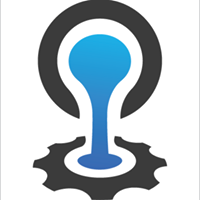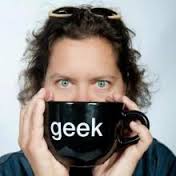open source community
See the following -
GitHub Is Helping Companies Work Together By Crowdsourcing Software
Even GitHub uses GitHub: Co-founder and CEO Tom Preston-Werner recently experienced in a very meta way the power of his online hosting service for software-development projects (and the largest open-source community around). [...] Read More »
- Login to post comments
Google Joins PwC in Bid to Modernize DOD’s EHR Infrastructure
Google, Inc. will be joining PricewaterhouseCooper (PwC) and its partners in a bid to win the favor of the Pentagon as it seeks to modernize its EHR infrastructure. The PwC team, which also includes DSS, MedSphere, and General Dynamics Technology, is facing stiff competition from its rivals, but hopes its open-source offering will become even more attractive to the Department of Defense with the backing of the tech giant’s significant resources and experience. Read More »
- Login to post comments
Google Joins the Open Source Cloud Foundry Foundation
 Google is joining the Cloud Foundry Foundation as a Gold member. To be fair, this doesn’t necessarily come as a major surprise, especially given that Google recently hired the foundation’s former CEO Sam Ramji. Other Cloud Foundry Gold-level members include Accenture, Allstate, CenturyLink, Huawai, Phillips and Verizon. It’s worth noting that Google — unlike Cisco, IBM, SAP and others — didn’t opt for the highest level of sponsorship (platinum), though...
Google is joining the Cloud Foundry Foundation as a Gold member. To be fair, this doesn’t necessarily come as a major surprise, especially given that Google recently hired the foundation’s former CEO Sam Ramji. Other Cloud Foundry Gold-level members include Accenture, Allstate, CenturyLink, Huawai, Phillips and Verizon. It’s worth noting that Google — unlike Cisco, IBM, SAP and others — didn’t opt for the highest level of sponsorship (platinum), though...
- Login to post comments
Google’s Mind-Blowing Big-Data Tool Grows Open Source Twin
[Mike] Olson is the CEO of a Valley startup called Cloudera, and [John] Schroeder is the boss at MapR, a conspicuous Cloudera rival. Both outfits deal in Hadoop — a sweeping open source software platform based on data center technologies that underpinned the rise of Google’s web-dominating search engine — but in building their particular businesses, the two startups approached Hadoop from two very different directions... Read More »
- Login to post comments
Help Us Integrate GitLab and the Open Science Framework
 For years, the benefits of open source code development have been self-evident to the software development community: Transparency leads to collaboration, and collaboration leads to better and more secure code. The scientific community is just starting to understand these benefits. The growing open science movement is using these same lessons to make the scientific process more transparent, so that research findings will be more reproducible. In order to realize the benefits of open science, we must use a wide set of research tools to enable transparency, which will lead to increased discoverability, reuse, and collaboration...
For years, the benefits of open source code development have been self-evident to the software development community: Transparency leads to collaboration, and collaboration leads to better and more secure code. The scientific community is just starting to understand these benefits. The growing open science movement is using these same lessons to make the scientific process more transparent, so that research findings will be more reproducible. In order to realize the benefits of open science, we must use a wide set of research tools to enable transparency, which will lead to increased discoverability, reuse, and collaboration...
- Login to post comments
HIMSS2015: OSEHRA to Exhibit at Annual HIMSS Conference in Chicago
The Open Source Electronic Health Record Alliance (OSEHRA) will return as an exhibitor at the Healthcare Information and Management Society (HIMSS) Annual Conference and Exhibition from Monday, April 13 through Wednesday, April 15, 2015, in Chicago, Illinois...During the three-day conference, OSEHRA will showcase significant achievements at Booth 7530. Attendees will learn of the successes, challenges, and lessons gained from the institutionalization of VistA within VA, the support of the domestic private sector market, and the international implementations of VistA by the UK and Jordan.
- Login to post comments
Hiring Managers Advise Job Seekers To Contribute To Open-Source Projects
Contributing to open-source projects can give software developers an edge over other applicants in the competitive IT job market, say hiring professionals. Read More »
- Login to post comments
HL7 to Offer its Standards for Free
In what is being touted as one of the most important breakthroughs in interoperability in a decade, the global healthcare standards-making body said it will spend the next few months planning for the move with the policy expected to take effect early next year.
- Login to post comments
How Breaking My Back Led Me To Open Source
 Open source gave a voice and a community to someone coping with the aftermath of a major injury, and eventually led to a new career...Breaking my back was a pivotal experience on many fronts. It scared the hell out of me. But the road to recovery helped me become a more resilient, courageous, and patient human being. Interestingly, it was this incident that also led me to the world of open source. Living with chronic pain is lonely, but I found my voice and a community via WordPress. Now, nearly eight years later, I'm working for the number one open source company in the world.
Open source gave a voice and a community to someone coping with the aftermath of a major injury, and eventually led to a new career...Breaking my back was a pivotal experience on many fronts. It scared the hell out of me. But the road to recovery helped me become a more resilient, courageous, and patient human being. Interestingly, it was this incident that also led me to the world of open source. Living with chronic pain is lonely, but I found my voice and a community via WordPress. Now, nearly eight years later, I'm working for the number one open source company in the world.
- Login to post comments
How can an Electronic Health Solution help Physicians Keep their Doors Open
In my previous article I started to address the unenviable position that physicians in the United States find themselves, in and how open source solutions can help them keep their doors open. In this article we will address some of the additional business challenges that physician offices and clinics face, and how the Electronic Health Solution (EHS) that we just released can help give them the tools and flexibility to both care for their patients and run a sustainable practice.
- Login to post comments
How Can Open Source Projects Support Themselves in Health Care?
 High prices and poor usability hasn't driven the health care industry away from megalithic, proprietary applications. What may win the industry over to open source (in addition to the hope of fixing those two problems) is its promises of easy customization, infinite flexibility, extensibility, and seamless data exchange. As we will see, open platforms also permit organizations to collaborate on shared goals, which appeals to many participants. But if open source projects can't charge hundreds of thousands of dollars for installation as their commercial competitors do, how will they pay their developers and hold together as projects? This article compares three major organizations in the open source health care space: the tranSMART Foundation, Open Health Tools (OHT), and Open mHealth. Each has taken a different path to the universal goal of stability.
High prices and poor usability hasn't driven the health care industry away from megalithic, proprietary applications. What may win the industry over to open source (in addition to the hope of fixing those two problems) is its promises of easy customization, infinite flexibility, extensibility, and seamless data exchange. As we will see, open platforms also permit organizations to collaborate on shared goals, which appeals to many participants. But if open source projects can't charge hundreds of thousands of dollars for installation as their commercial competitors do, how will they pay their developers and hold together as projects? This article compares three major organizations in the open source health care space: the tranSMART Foundation, Open Health Tools (OHT), and Open mHealth. Each has taken a different path to the universal goal of stability.
- Login to post comments
How Community Building Can Help an Organization's Bottom Line
 In this article, I'll look at community from a business perspective, including the effect community can have on an organization's bottom line. Although there are communities everywhere, I'll approach the topic—meaning, communities, their members, and their contributors—from a free/open source perspective. So please stick around, and maybe you'll learn ways to communicate the importance of community to your organization...
In this article, I'll look at community from a business perspective, including the effect community can have on an organization's bottom line. Although there are communities everywhere, I'll approach the topic—meaning, communities, their members, and their contributors—from a free/open source perspective. So please stick around, and maybe you'll learn ways to communicate the importance of community to your organization...
- Login to post comments
How DoD Plans to Leverage Artificial Intelligence and Open Source to Improve Emergency Response and Disaster Relief
 Some might not know it, but the US military plays a key role in US disaster response strategy and, accordingly, the Department of Defense (DoD) has prioritized its disaster response mission and is investing heavily towards increasing its capabilities and effectiveness. Technology is a big part of all modern DoD missions, and disaster response is no different. The most promising and transformative technology on the horizon for our future, and for the future of the DoD, is Artificial Intelligence (AI). So how exactly will the DoD leverage Artificial Intelligence technologies in order to meet the demands of the disaster response mission? Is a new Center of Excellence created by DoD, called the Joint Artificial Intelligence Center (JAIC). Read More »
Some might not know it, but the US military plays a key role in US disaster response strategy and, accordingly, the Department of Defense (DoD) has prioritized its disaster response mission and is investing heavily towards increasing its capabilities and effectiveness. Technology is a big part of all modern DoD missions, and disaster response is no different. The most promising and transformative technology on the horizon for our future, and for the future of the DoD, is Artificial Intelligence (AI). So how exactly will the DoD leverage Artificial Intelligence technologies in order to meet the demands of the disaster response mission? Is a new Center of Excellence created by DoD, called the Joint Artificial Intelligence Center (JAIC). Read More »
- Login to post comments
How NASA Is Using WordPress To Promote Open Source Technologies
The National Aeronautic and Space Administration has been a leading global pioneer in science and technology since its inception in 1958, boldly going where no man has gone before. [...] But did you know that NASA is also an active participant in the open source community? Read More »
- Login to post comments
How New OSS Communities And Code Bases Are Developed From Old Ones
Open source software developers modify significant amounts of source code for a variety of different reasons. Depending on the amount of modification, the number of developers doing the fragmentation (sometimes called a “fork” in the code), the status of these developers in the community, and the intention of the development community, the results could be just a few lines of updated code, or it could be a complete fork of the code base that takes the open source project in an entirely new direction. Read More »
- Login to post comments